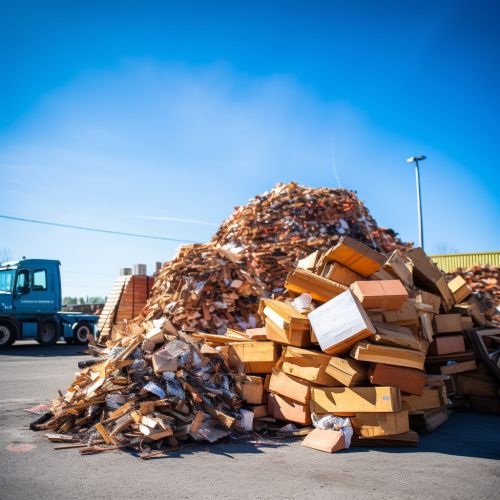Municipal Waste Biomass
Introduction
Municipal waste biomass refers to the organic materials present in municipal solid waste (MSW) that can be converted into energy through various processes such as anaerobic digestion, gasification, and incineration. This form of biomass is a significant source of renewable energy, and its utilization can help mitigate environmental issues such as landfilling and greenhouse gas emissions.
Municipal Waste Biomass Composition
Municipal waste biomass primarily consists of organic materials such as food waste, yard waste, paper, and wood. The composition of MSW varies widely depending on the region, season, and waste management practices. However, organic materials typically make up a significant portion of MSW, making it a substantial source of biomass energy.


Energy Conversion Processes
There are several processes through which municipal waste biomass can be converted into energy. These include:
Anaerobic Digestion
Anaerobic digestion is a biological process that breaks down organic materials in the absence of oxygen. This process produces biogas, a mixture of methane and carbon dioxide, which can be used as a fuel for heat and power generation.
Gasification
Gasification is a thermal process that converts organic materials into a gas known as syngas. This gas, composed mainly of hydrogen and carbon monoxide, can be used to generate electricity and heat, or as a feedstock for producing chemicals and fuels.
Incineration
Incineration is a process that involves the combustion of organic materials to produce heat. This heat can be used to generate steam, which can then be used to produce electricity through a steam turbine.
Benefits of Municipal Waste Biomass
Utilizing municipal waste biomass for energy production offers several benefits:
Waste Reduction
By converting organic waste into energy, the volume of waste that needs to be disposed of in landfills is significantly reduced. This can help alleviate the environmental and logistical issues associated with waste disposal.
Renewable Energy Production
Municipal waste biomass is a renewable source of energy. Unlike fossil fuels, which are finite and contribute to climate change, biomass can be continually replenished and has a lower carbon footprint.
Energy Security
By utilizing local waste resources for energy production, regions can reduce their dependence on imported fossil fuels, enhancing their energy security.
Challenges and Limitations
While municipal waste biomass offers significant potential for renewable energy production, there are also challenges and limitations to its use:
Feedstock Variability
The composition of municipal waste can vary widely, which can affect the efficiency and stability of energy conversion processes.
Environmental Concerns
While biomass is generally considered a low-carbon energy source, the collection and processing of municipal waste biomass can still result in greenhouse gas emissions. Additionally, some energy conversion processes, such as incineration, can produce harmful air pollutants.
Economic Viability
The economic viability of municipal waste biomass energy projects can be influenced by several factors, including the cost of waste collection and processing, the availability of suitable technology, and the price of alternative energy sources.
Future Perspectives
With advancements in technology and increasing emphasis on renewable energy and waste management, the utilization of municipal waste biomass for energy production is expected to increase in the future. However, to fully realize its potential, it is essential to address the challenges and limitations associated with its use.
